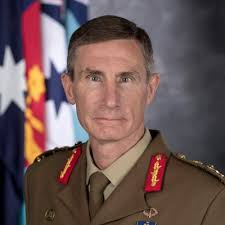A Senate committee will inquire into ‘potentially illegal medals’ awarded to senior Defence officers and the integrity of awards bestowed on personel involved in the Afghanistan conflict.

It will investigate “in depth” the awarding of a Distinguished Service Cross (DSC) to retired General Angus Campbell.
The Distinguished Service Cross, introduced in 1991, is awarded for distinguished command and leadership in warlike operations.
However there are concerns Angus Campbell didn’t meet the criteria for the medal, which include being involved in combat.
Senator Malcolm Roberts, who initiated the inquiry, says the Defence honours and awards system has been abused by senior officers and the inquiry will recommend potential improvements to the Defence Awards and Honours system.
“Senior brass nominate each other for medals as if they are an entitlement in their salary package,” he said.
“Meanwhile, enlisted personnel have to fight for recognition and higher-ups arbitrarily downgrade their medals.”
General Campbell’s Distinguished Service Cross is the tip of the iceberg, Senator Roberts said.
The senator pursued the issue during senate estimates in May when he questioned whether General Campbell was entitled to earn the DSC for has action while commanding Australian forces in the Middle East because he wasn’t in the front line, and suggested the medal be returned.
“This inquiry will have the ability to look at the issue in depth. The system needs a serious inquiry and I’m thankful to the Senate for investigating,” he said in a statement last week.
It’s understood that submissions to the inquiry so far have expressed concern about the awarding of the medal to Angus Campbell, who is expected to be a focal part of the inquiry and called to give evidence.
The inquiry also follows the 2020 Brereton Report, by the Inspector-General of the Australian Defence Force, which found credible information of war crimes committed by the ADF in Afghanistan between 2005 and 2016.
Australia’s military involvement in Afghanistan began in September 2001 and continued until mid-June 2012, making it Australia’s longest engagement in an armed conflict.





General Campbell’s DSC was awarded 11 June 2012, vide the Queen’s Birthday honours list of 2012.
The citation reads: “For distinguished command and leadership in action as Commander Joint Task Force 633 on Operation SLIPPER from January 2011 to December 2011″. Note the reference to ‘in action” (source: https://honours.pmc.gov.au/honours/awards/1146295).
The citation associated with General Campbell’s DSC is incorrect. On 13 December 2011, Queen Elizabeth II amended the Letters Patent and regulations for all three Australian distinguished service decorations (DSC, DSM and CDS). All instances of “in action” were replaced by “in warlike operations”. The amendments were published in the Commonwealth of Australia Gazette (Special) S18 dated 22 February 2012 (source: https://www.defence.gov.au/adf-members-families/honours-awards/honours-decorations/australian-gallantry-distinguished-service-awards/distinguished-service-cross). General Campbell’s DSC was actually awarded for distinguished service on a warlike operation (Operation Slipper). He did not have to satisfy the “in action” test that previously applied to the DSC (and DSM and CDS).
A better avenue of inquiry might be: who proposed the changes to the distinguished service regulations, and who in Defence signed-off on them?
The DSC was established in 1991 with the criteria “Distinguished command and leadership in action”, this required distinguished service directly in the face of the enemy, it wasn’t chaned to “warlike operations” until 2012.